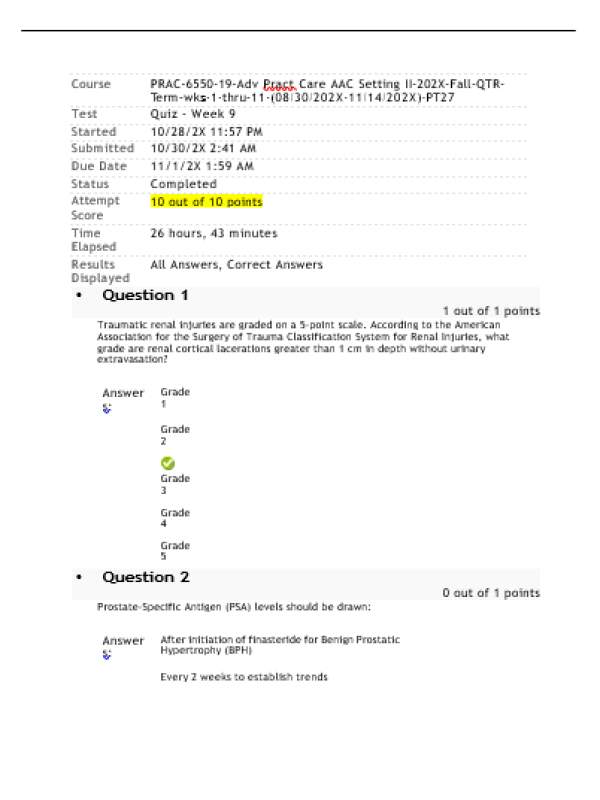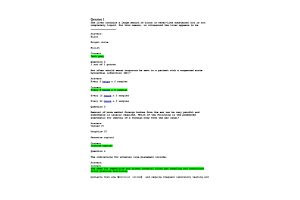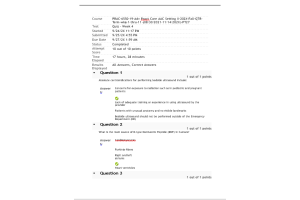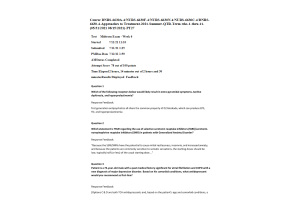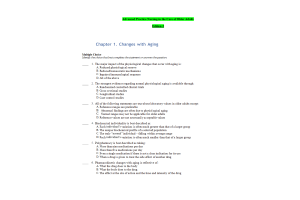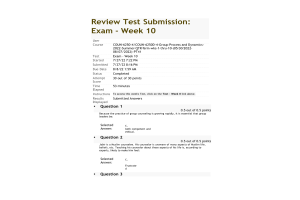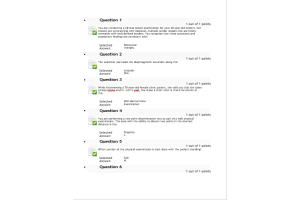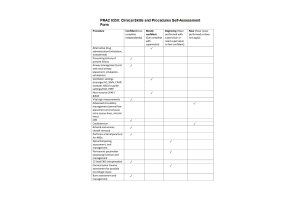PRAC 6550-19 Week 9 Quiz (100% Correct)
- $15.00
1.
Question: Traumatic renal injuries are graded
on a 5-point scale. According to the American Association for the Surgery of
Trauma Classification System for Renal Injuries, what grade are renal cortical
lacerations greater than 1 cm in depth without urinary extravasation?
2.
Question: Prostate-Specific Antigen (PSA)
levels should be drawn:
3.
Question: In a steady state, if creatinine
clearance is reduced by 50%, then serum creatinine should increase twofold.
Based on this principle, if a patient with a baseline serum creatinine of 1
mg/dl and a creatinine clearance of 120 ml/min has a decrease in creatinine
clearance to 60 ml/min due to an acute kidney injury, then you would expect
this patient’s serum creatinine to now be:
4.
Question: A 70 kg male is transfused 1 unit
of Packed Red Blood Cells (PRBCs) for symptomatic anemia that has not responded
to other treatments. How much would you expect the hemoglobin and hematocrit to
increase?
5.
Question: Noninvasive Positive Pressure
Ventilation (NIPPV) is bilevel ventilation that provides inspiratory and
expiratory support. Using the low to high approach to initiate NIPPV, what are
the initial settings that should be ordered?
6.
Question: Serum bicarbonate is elevated in
metabolic alkalosis. Which of the following can cause metabolic alkalosis?
7.
Question: What is the approximate INR of a
unit of Fresh Frozen Plasma (FFP)?
8.
Question: What should you do to stabilize a
patient if the tracheostomy tube placed less than 7 days ago becomes dislodged
and the patient is showing signs of respiratory distress?
9.
Question: Which of the following disease
processes leads to an elevated platelet count on a CBC?
10. Question: Which of the following is an indication for obtaining blood cultures on a patient in the Emergency department (ED)?
